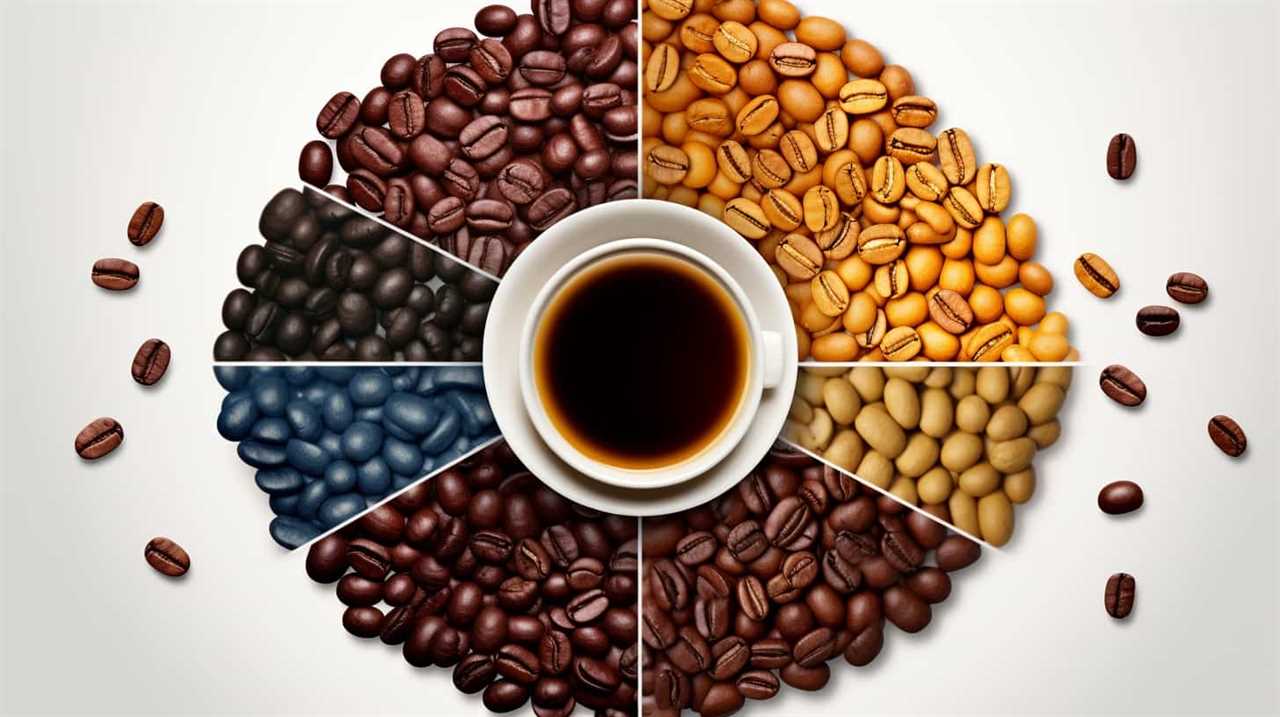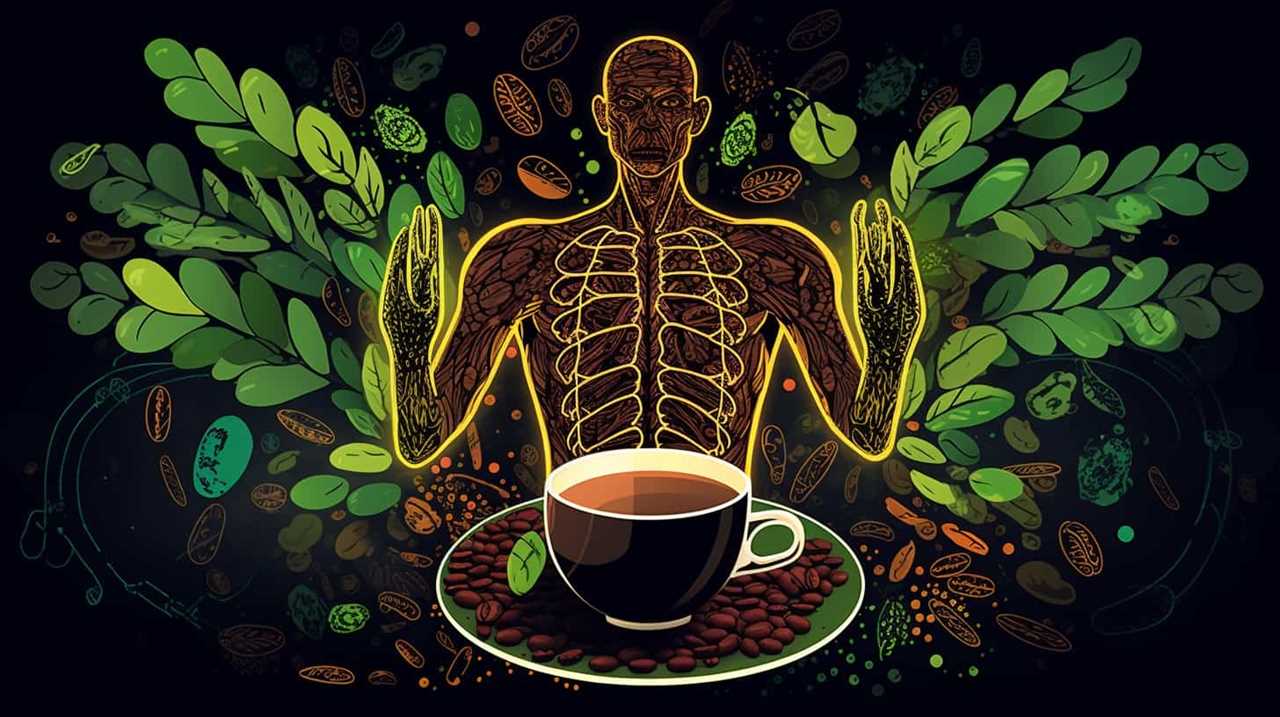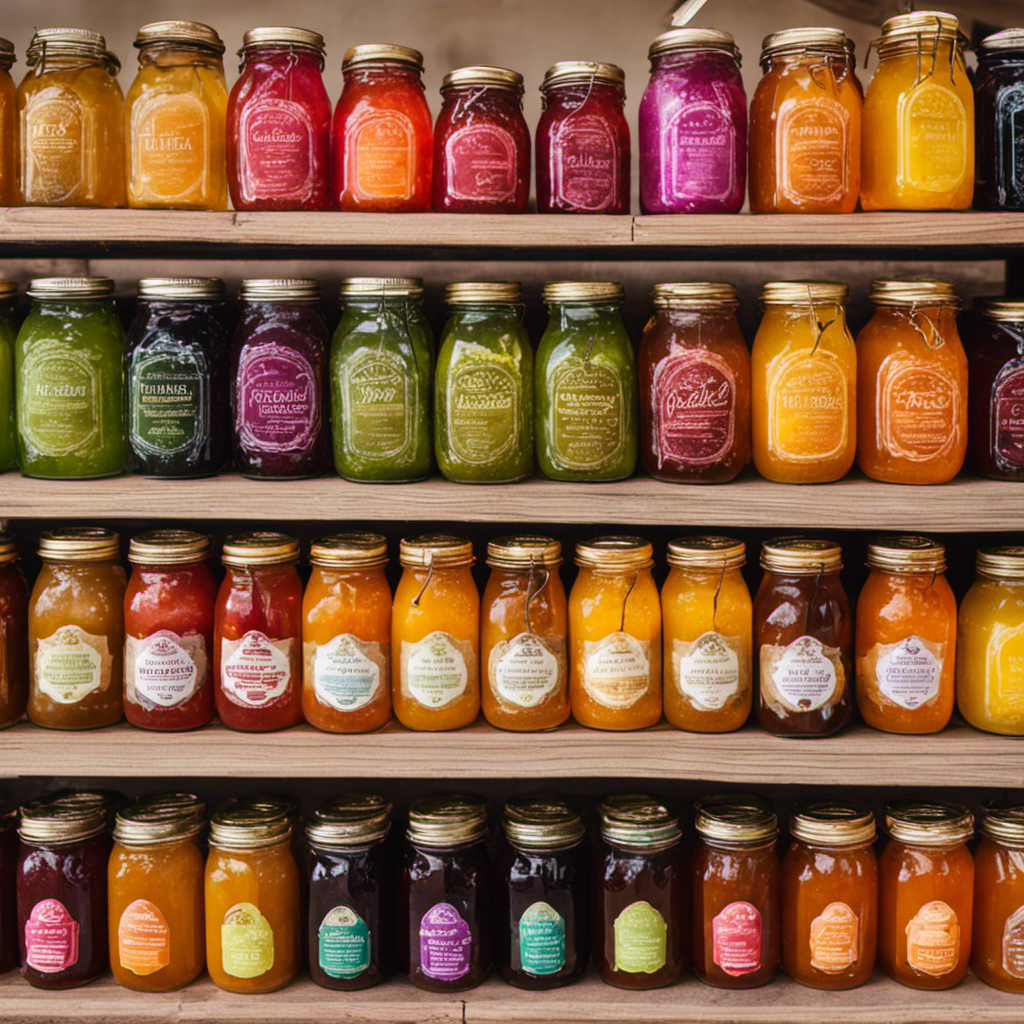Coffee, Tea and Alternatives and Health plus Fitness
Naughty And Nice: Low Carb Drink Guide

Low carb diets have gained popularity in recent years as more people seek to lose weight, manage blood sugar levels, and reduce their appetite. However, finding low-carb drinks can be a challenge for those following this dietary lifestyle.
The ‘Naughty and Nice: Low Carb Drink Guide’aims to provide a comprehensive overview of the best and worst low-carb drinks available. This guide offers an unofficial list of drinks that are both low in carbohydrates and delicious, providing useful tips and recipes for those looking to maintain a low-carb lifestyle.
The article outlines the benefits of a low-carb diet, including weight loss, improved blood sugar control, and reduced appetite. Moreover, the article provides a balanced and evidence-based perspective on low-carb drinks, highlighting the healthiest options and the ones to avoid.
Key Takeaways
- Water is the best low-carb drink option.
- Non-dairy milk and nut milks can be used as low-carb substitutes for dairy milk.
- Hard liquor and wine are low-carb alcoholic drink options.
- High-carb drinks to avoid include soft drinks, fruit juice, energy drinks, and beer.
Low-Carb Diet Benefits
The benefits of a low-carb diet include weight loss, blood sugar regulation, and reduced appetite. This type of diet emphasizes different macronutrients and has varying guidelines for carb intake, depending on its goals.
For instance, the first phase of Atkins and strict keto only allow for 20-25 grams of net carbs per day.
Studies have shown that low-carb diets are effective in aiding weight loss and regulating blood sugar levels in individuals with type 2 diabetes. These diets can also contribute to heart health by lowering blood pressure and cholesterol levels.
However, it can be challenging to maintain a low-carb diet when eating and drinking outside of the home, which is why it is essential to know the right low-carb drinks to consume.
Healthy Low-Carb Drink Options
An assortment of suitable low-carbohydrate beverages are available, including water, coffee, tea, non-dairy milk, wine, and hard liquor, with some having zero carbohydrate content. These low-carb drink options provide a way to stay hydrated and enjoy a variety of flavors without compromising dietary goals.
In addition, drinking water can aid in weight loss by speeding up metabolism and making you feel full, while coffee and tea can also help with weight loss due to their caffeine content.
Here are some benefits of drinking water on a low carb diet:
- Water is the best low-carb drink as it contains zero carbs and helps with hydration.
- Drinking water can help with weight loss by reducing appetite and increasing metabolism.
- Water can help to flush out toxins and reduce inflammation in the body.
- Staying hydrated with water can improve skin health and prevent muscle cramping.
- Drinking water can help to regulate blood sugar levels and prevent dehydration.
Low-carb drink recipes are also available for those who want to experiment with new flavors and combinations. These recipes can be made with low-carb ingredients like almond milk, coconut milk, and artificial sweeteners like stevia and monk fruit extract.
Overall, incorporating healthy low-carb drink options into one’s diet can be an effective way to achieve dietary goals and maintain a healthy lifestyle.
High-Carb Drinks to Avoid
Soft drinks, fruit juice, energy drinks, and beer are examples of high-carb drinks that should be avoided on a low-carb diet. These drinks are often packed with added sugars, which can lead to weight gain, increased blood sugar levels, and other health problems.
For instance, a 12 oz can of cola contains around 40 grams of net carbs, while an 8 oz glass of fruit juice contains 25-35 net carbs due to its high fructose content. Moreover, diet soft drinks, which are often advertised as a low-carb option, can still be bad for you due to artificial sweeteners increasing sugar cravings, leading to overeating and weight gain.
Fortunately, there are many alternatives to high-carb drinks that are low in carbs and can be enjoyed on a low-carb diet.
For example, water is the best low-carb drink, but if you are looking for something more interesting, you can try sparkling water, seltzer, and club soda, which are all zero-carb alternatives to plain water. Additionally, coffee and tea can be good low-carb options, but be cautious of added sugar. Non-dairy milk, like almond milk and coconut milk, can be a low-carb substitute for dairy milk.
Red and white wine each contain only two grams of carbs per glass, while hard liquor, including vodka, whiskey, tequila, and gin, are zero-carb drinks. Finally, ready-to-drink alternatives like Super Coffee are zero-carb and low-calorie, making them a great option for those who are always on the go.
Additional Considerations
One important factor to take into consideration when following a low-carb diet is the potential impact of artificial sweeteners on sugar cravings, which can be compared to a double-edged sword that may hinder weight loss efforts. While artificial sweeteners like stevia and monk fruit extract may be keto-friendly alternatives to sugar, they can still stimulate sugar cravings and lead to overeating. In fact, some studies suggest that consuming artificial sweeteners may even increase the risk of obesity, type 2 diabetes, and other health problems.
To avoid the potential negative effects of artificial sweeteners, low carb dieters may want to try natural sweeteners like honey, maple syrup, or coconut sugar in moderation. Alternatively, they can opt for low carb milk substitutes like unsweetened almond milk, unsweetened coconut milk, or unsweetened soy milk, which contain minimal carbs and can be used in various recipes, from smoothies to low carb milkshakes.
Additionally, drinking water can be beneficial for weight loss on a low carb diet, as it can help speed up metabolism and curb appetite. Drinking tea and coffee, especially black or green tea and unsweetened coffee, can also aid in weight loss due to their high caffeine content.
Frequently Asked Questions
How does alcohol affect a low-carb diet?
Alcohol affects a low-carb diet by slowing down the process of ketosis, as the liver prioritizes alcohol metabolism over ketone production. Low carb drink alternatives like hard liquor, wine, and low-carb beer may be consumed in moderation.
Can low-carb diets be harmful to people with certain health conditions?
Low carb diets may pose risks for individuals with certain health conditions, including liver disease. While they may have benefits for weight loss and blood sugar control, it is important to consult a healthcare provider before starting a low carb diet.
Are there any natural sweeteners that are acceptable on a low-carb diet?
Two natural sweeteners that are acceptable on a low-carb diet are stevia and erythritol, both of which have a negligible impact on blood sugar levels. Low-carb alternatives to sugar-heavy mixers include soda water, zero-carb soda, and nut milks.
How can someone stick to a low-carb diet when eating out at restaurants?
When eating out at restaurants, low carb options can include selecting grilled or roasted meats, salads with low-carb dressings, and steamed vegetables. Meal planning in advance can also help ensure adherence to a low carb diet.
Is it necessary to count calories on a low-carb diet?
Counting calories may not be necessary on a low carb diet, as it prioritizes reducing carbohydrate intake and increasing protein and fat. However, monitoring caloric intake can aid in weight loss and maintenance. Consult a healthcare professional for personalized guidance.
Conclusion
Low-carb diets have become a popular choice for those seeking to lose weight and regulate their blood sugar. While finding low-carb drinks can be a challenge, this guide provides a helpful list of ‘naughty and nice’options. From water to low-carb beer and wine, there are plenty of healthy drink choices available for those on a low-carb diet.
For those looking to maintain a low-carb lifestyle, it’s important to understand the benefits of this type of diet. Research has shown that a low-carb diet can help with weight loss, improve blood sugar control, and reduce appetite. Additionally, low-carb diets have been linked to improved heart health and a reduced risk of certain chronic diseases.
When it comes to choosing low-carb drinks, there are many options available. Water, unsweetened tea, and coffee are all great choices, as they contain few or no carbs. Low-carb beer and wine are also available for those who want to indulge in a drink without breaking their diet. However, it’s important to be aware of high-carb drinks to avoid, such as sugary sodas and fruit juices.
In conclusion, a low-carb diet can provide numerous health benefits, and there are plenty of low-carb drink options available. By making informed choices and avoiding high-carb drinks, those on a low-carb diet can enjoy a healthy lifestyle while still indulging in the occasional drink. Remember, moderation is key, and staying hydrated with water should always be a top priority.
So, grab a low-carb drink and cheers to a healthy and happy life!
Arf, an author and an innovative enthusiast of coffee, coffee alternatives, and tea, plays a crucial role as a contributor to the esteemed Cappuccino Oracle platform. Renowned for his curiosity and passion for these captivating beverages, Arf has carved out a unique space for himself in the world of exploration and writing. He realized that coffee, coffee alternatives, and tea are not mere drinks to keep one awake, but universes of flavors and stories waiting to be explored.
Arf’s articles for Cappuccino Oracle blend meticulous research with personal experiences, providing readers with an in-depth understanding of various types of coffee, coffee alternatives, and tea, along with their unique characteristics, cultures, and histories. His honest reviews and engaging narratives guide readers on their own journeys, helping them discover their preferences and find their perfect brew.
Coffee, Tea and Alternatives and Health plus Fitness
Is There a Connection Between The Temperature of Your Coffee and Your Metabolic Rate?

Have you ever considered the idea that the temperature of your coffee might have an effect on your metabolism? Recent studies suggest there could be a link between the two.
In this article, we will explore the scientific evidence behind this fascinating phenomenon. Through a comprehensive survey and analysis of various coffee temperatures, we aim to provide you with a better understanding of the potential health implications.
So grab a cup of coffee and join me as we delve into the world of coffee temperature and its impact on our bodies.
Key Takeaways
- Cold brew coffee may increase metabolic rate.
- Caffeine in cold brew coffee can boost metabolism.
- Hot coffee can speed up digestion.
- Drinking coffee at extremely high temperatures may increase the risk of esophageal cancer.
The Influence of Cold Brew on Metabolic Rate
I’ve noticed that drinking cold brew coffee seems to increase my metabolic rate. This observation led me to explore the potential influence of cold brew on weight loss.
Several studies have shown that caffeine can have a positive effect on weight loss by boosting metabolism. Cold brew coffee, which is brewed with cold water over an extended period, contains higher levels of caffeine compared to regular hot brew. This higher caffeine content could potentially enhance the metabolic rate even further.
Additionally, the slow brewing process of cold brew coffee may lead to a higher extraction of caffeine, resulting in increased caffeine absorption in the body.
While more research is needed to fully understand the effects of cold brew on weight loss and caffeine absorption, these initial findings suggest that cold brew coffee may have a positive influence on metabolic rate and potentially aid in weight loss.
Effects of Hot Coffee on Digestion Speed
While hot coffee is often associated with a comforting morning routine, it’s important to consider the potential effects of temperature on digestion speed. The temperature of the food and beverages we consume can have an impact on how quickly our digestive system processes them.
When it comes to hot coffee, research suggests that it may actually speed up digestion. This is because hot temperatures stimulate the production of gastric juices, which help break down food more efficiently. Additionally, the heat from the coffee can cause the muscles in the digestive tract to contract and relax, facilitating the movement of food through the system.
However, it’s worth noting that the effects of hot coffee on digestion speed may vary from person to person. Furthermore, caffeine absorption is another factor to consider. Caffeine is known to stimulate the central nervous system and can increase metabolic rate. Therefore, consuming hot coffee with caffeine may have additional effects on digestion speed and metabolism.
Comprehensive Survey: Health Implications of Varying Coffee Temperatures
I’m currently researching the health implications of varying coffee temperatures through a comprehensive survey. Here are three key findings from my study:
-
Impact on sleep quality: Preliminary results suggest that consuming hot coffee before bedtime may negatively affect sleep quality. The elevated temperature of the beverage can interfere with the body’s natural cooling process, leading to restlessness and difficulty falling asleep.

-
Potential health benefits: On the other hand, evidence suggests that consuming coffee at a moderate temperature (around 135-150°F) may have certain health benefits. These include improved cognitive function, increased alertness, and a potential boost in metabolism.
-
Risk of burns: It’s crucial to be cautious when drinking hot coffee to avoid burns. High temperature liquids can cause damage to the mouth, throat, and digestive system. Opting for a slightly lower temperature can help minimize this risk and still provide a satisfying coffee-drinking experience.
As more data is analyzed and additional research is conducted, a better understanding of the health implications of varying coffee temperatures will emerge.
Exploring the Broader Health Implications of Coffee Temperature
Although more research is needed, evidence suggests that drinking coffee at extremely high temperatures may increase the risk of developing esophageal cancer.

However, the impact of coffee temperature on cognitive function and blood pressure is still a subject of debate. Some studies have shown that consuming hot coffee can improve cognitive performance and alertness due to the stimulating effects of caffeine.
On the other hand, high temperatures can also elevate blood pressure temporarily. It’s important to note that individual responses to coffee temperature may vary, and factors such as personal preferences, tolerance, and overall health should be considered.
To maintain a balanced approach, it’s advisable to consume coffee at a moderate temperature and be mindful of potential risks associated with excessively hot beverages.
Further research is necessary to fully understand the relationship between coffee temperature and its effects on cognitive function and blood pressure.
Addressing Inquiries: The General Impact of Coffee Temperature
Someone might wonder if the temperature of their coffee has any impact on their overall well-being, but it’s important to consider the general effects of coffee temperature on the body. Research on coffee temperature has revealed several interesting findings:
-
Burns and tissue damage: Hot coffee can cause burns and tissue damage if consumed too quickly or spilled. It’s crucial to let your coffee cool down before taking a sip to avoid any potential harm.
-
Taste and enjoyment: The temperature of coffee affects its taste and overall enjoyment. Too hot, and it can scorch your taste buds, making it difficult to fully appreciate the flavor. Conversely, coffee that’s too cold may lack the desired richness and warmth.
-
Digestion and metabolism: While there’s limited research on the direct impact of coffee temperature on metabolism, some studies suggest that consuming hot coffee may slightly increase metabolic rate. However, the effect is minimal and not significant enough to rely on coffee as a weight loss strategy.

Frequently Asked Questions
What Are the Potential Health Risks Associated With Drinking Hot Coffee?
Drinking hot coffee can pose potential health risks. The high acidity levels in coffee can lead to tooth enamel erosion over time.
Additionally, there’s a risk of burns or scalds when consuming hot beverages. It’s important to be cautious and allow the coffee to cool down before drinking to avoid these risks.
Taking preventative measures, such as using a thermal cup or adding ice, can also help protect against these potential health issues.
Can Drinking Cold Brew Coffee Help With Weight Loss?
Drinking cold brew coffee has gained popularity due to its refreshing taste and potential weight loss benefits. Cold brew is made by steeping coffee grounds in cold water for an extended period, resulting in a smoother and less acidic beverage.
Some studies suggest that the caffeine and antioxidants in cold brew may increase metabolism and aid in weight loss. However, more research is needed to fully understand the effects of cold brew on weight management.
Does the Temperature of Coffee Affect Its Caffeine Content?
When considering the temperature of coffee, it’s important to understand the effects on caffeine absorption and taste preference. Research suggests that higher temperatures can lead to faster caffeine absorption, resulting in a more immediate energy boost. However, taste preference may vary depending on personal preferences.
It’s crucial to note that individual reactions to caffeine and temperature can differ, and it’s best to consult with a healthcare professional for personalized advice.
Is It Safe to Consume Coffee That Has Been Left at Room Temperature for an Extended Period of Time?
When it comes to coffee safety, one question that often arises is whether it’s safe to consume coffee that has been left at room temperature for an extended period of time.
It’s important to consider the potential risks associated with consuming room temperature coffee, as it may become a breeding ground for bacteria if left out for too long.
Therefore, it’s generally recommended to consume coffee while it’s still hot or to properly store it in a refrigerator to maintain its freshness and reduce the risk of bacterial growth.
Can the Temperature of Coffee Impact Its Antioxidant Levels?
The temperature of coffee can indeed impact its antioxidant levels. Hotter temperatures tend to increase the release of antioxidants, which can have a positive impact on digestion and blood sugar levels.
However, it’s important to note that excessively hot temperatures can also lead to the destruction of certain antioxidants. Therefore, it’s recommended to consume coffee at a moderate temperature to optimize its antioxidant benefits.
Conclusion
In conclusion, the temperature of coffee may have some influence on our metabolic rate and digestion speed. Cold brew coffee has been found to potentially increase metabolic rate, while hot coffee may speed up digestion. However, more research is needed to fully understand the health implications of varying coffee temperatures.
It’s important to address these inquiries in order to better understand the general impact of coffee temperature on our overall well-being. Like a gentle breeze on a warm day, the temperature of our coffee may subtly affect our body’s functioning, encouraging us to explore further.
In the vast and diverse world of coffee, coffee alternatives, and tea, Olivia has found her calling. As an author and a dedicated coffee and tea aficionado, her work for Cappuccino Oracle reflects her profound love and understanding of the intricate complexities found within these beverages. Olivia’s passion for the subject serves as both a catalyst for her creativity and a connection point with her audience.
Olivia’s appreciation for coffee, coffee alternatives, and tea blossomed at an early age. She discovered that these beverages invigorated her senses and stimulated her creative spirit. From the nuanced flavors of single-origin roasts to the captivating narratives intertwined with coffee, coffee alternatives, and tea trade and culture, Olivia found an unlimited source of inspiration in her daily cup.
Her love for these beverages and her talent for storytelling eventually converged at Cappuccino Oracle. As an author, Olivia’s mission is to illuminate the intricate tapestry that makes up the world of coffee, coffee alternatives, and tea. Her articles span a diverse range of topics, encompassing everything from the unique flavors of different brews to the sociocultural history intertwined with their cultivation and consumption.
Coffee, Tea and Alternatives and Health plus Fitness
Mastering the Art of Boosting Metabolism Through Coffee

Being a coffee enthusiast, I have often pondered about the potential benefits of my favorite morning pick-me-up. It turns out, coffee can do so much more than just help me wake up!
In this article, I’ll share with you the secrets to mastering the art of boosting metabolism through coffee. We’ll explore the importance of fresh, high-quality beans, grinding your own for maximum effectiveness, and why avoiding processed coffee is crucial.
Get ready to discover how to enhance your coffee experience for optimal metabolism-boosting results.
Key Takeaways
- Fresh, high-quality beans retain flavor and aroma when stored properly
- Grinding your own beans allows for consistent grind size and optimal flavors
- Freshly brewed coffee made from whole beans is essential for boosting metabolism
- Sweetener-free coffee allows appreciation of natural flavors and aromas
The Importance of Fresh, High-Quality Beans
I absolutely believe that the key to a truly satisfying cup of coffee lies in using fresh, high-quality beans. When it comes to bean storage techniques, it’s important to keep them in an airtight container away from light, moisture, and heat. This helps preserve their flavor and aroma for a longer period of time.
As for the impact of roasting on coffee metabolism boosting, studies have shown that darker roasts have a higher caffeine content and can potentially increase metabolism. However, it’s worth noting that the difference isn’t significant enough to solely rely on coffee for weight loss. Regular exercise and a balanced diet are still essential.
Now, let’s move on to the next section where we’ll discuss grinding your own beans for maximum effectiveness in boosting metabolism.
Grinding Your Own Beans for Maximum Effectiveness
Grinding my own beans allows me to control the coarseness, resulting in a more flavorful and effective cup of coffee. When it comes to grinding techniques, finding the right roast is crucial.
Here’s how grinding your own beans can enhance your coffee experience:
-
Consistency: By grinding your own beans, you can achieve a consistent grind size, which is essential for extracting the optimal flavors from the coffee grounds.
-
Freshness: Pre-ground coffee can quickly lose its freshness and aroma. Grinding your beans just before brewing ensures that you’re getting the freshest cup possible.
-
Customization: Different brewing methods require different grind sizes. By grinding your beans at home, you can adjust the coarseness to match your preferred brewing method, whether it’s a French press, pour-over, or espresso.
Avoiding Processed Coffee for Optimal Metabolism Boosting
Drinking freshly brewed coffee made from whole beans is essential for achieving optimal metabolism boosting.
When it comes to choosing the right coffee beans, it’s important to consider whether to go for organic or conventional options. Organic coffee is grown without the use of synthetic pesticides and fertilizers, making it a healthier choice for both our bodies and the environment. Conventional coffee, on the other hand, may contain residues of these chemicals, which can have negative effects on our metabolism.
Additionally, the impact of caffeine on metabolism shouldn’t be overlooked. Caffeine has been shown to increase metabolic rate and fat oxidation, aiding in weight management. However, it’s important to consume coffee in moderation and be mindful of any potential negative effects, such as sleep disruption or increased heart rate.
Sweetener-Free: Why Drinking Coffee Without Additives Is Key
Using sweetener-free coffee allows me to fully appreciate the natural flavors and aromas of the beans. Not only does it enhance my coffee-drinking experience, but it also has several health benefits. Here are three reasons why drinking coffee without additives is key:
-
Preserves the true taste: Adding sweeteners masks the natural flavors of coffee. By going sweetener-free, you can savor the rich, complex taste of the beans and truly enjoy the nuances of different coffee varieties.

-
Reduces calorie intake: Sweeteners can add unnecessary calories to your daily diet. By skipping the additives, you can enjoy your coffee guilt-free and maintain a healthier lifestyle.
-
Avoids potential health risks: Some sweetener alternatives may have adverse effects on our health. By opting for sweetener-free coffee, you can minimize the potential risks associated with artificial additives.
Balancing Coffee Consumption for Sustainable Results
I find that moderation is key when it comes to achieving sustainable results with my coffee consumption. Understanding my caffeine tolerance and timing my coffee intake appropriately are crucial factors in maintaining a healthy relationship with this beloved beverage.
Caffeine tolerance varies from person to person. It’s important to listen to our bodies and be mindful of our individual limits. Consuming excessive amounts of caffeine can lead to negative side effects such as jitteriness, increased heart rate, and disrupted sleep patterns. It’s recommended to limit daily caffeine intake to 400 milligrams, which is roughly equivalent to four cups of brewed coffee.
The timing of coffee consumption also plays a significant role in maximizing its benefits. Consuming coffee in the morning can help jumpstart metabolism and enhance cognitive function throughout the day. However, it’s advised to avoid drinking coffee too close to bedtime, as it may interfere with sleep quality.
Frequently Asked Questions
Can I Achieve the Same Metabolism-Boosting Benefits With Instant Coffee?
Can I achieve the same metabolism-boosting benefits with instant coffee?
Instant coffee alternatives mightn’t have the same impact on metabolism as freshly brewed coffee. The brewing method plays a significant role in unlocking the metabolism-boosting properties of coffee.
Instant coffee is usually made through a different process that can affect its chemical composition. While instant coffee may still provide a caffeine boost, it may not have the same impact on metabolism as freshly brewed coffee.
How Does the Freshness of Coffee Beans Affect Its Metabolism-Boosting Properties?
When it comes to boosting metabolism, the freshness of coffee beans can make a real difference. Roasting the beans affects their metabolism-boosting properties, so the type of coffee bean you choose matters.
Freshly roasted beans contain higher levels of compounds like chlorogenic acid, which can increase metabolic rate. So, if you’re looking to master the art of boosting metabolism through coffee, opt for freshly roasted beans to maximize the effects and get that extra kickstart to your day.
Is It Necessary to Grind Coffee Beans Right Before Brewing to Maximize the Metabolism-Boosting Effects?
To maximize the metabolism-boosting effects of coffee, it’s necessary to grind the beans right before brewing. Grinding techniques play a crucial role in releasing the coffee’s flavors and active compounds, including those that boost metabolism.
What Additives or Sweeteners Should I Avoid Adding to My Coffee to Optimize Metabolism-Boosting Benefits?
To optimize the metabolism-boosting benefits of coffee, it’s best to avoid adding certain additives or sweeteners. Natural sweeteners like stevia or honey are great options. They provide sweetness without adding extra calories or negatively impacting metabolism.
As for coffee roast level, it doesn’t significantly impact its metabolism-boosting properties. So feel free to enjoy your preferred roast level while reaping the benefits of a boosted metabolism.
Is There a Recommended Amount of Coffee Consumption per Day to Maintain Sustainable Metabolism-Boosting Results?
There isn’t a specific recommended daily intake of coffee to maintain sustainable metabolism-boosting results.
However, research suggests that moderate caffeine consumption can have positive effects on metabolism.
It’s important to listen to your body and not exceed your personal tolerance for caffeine.

Drinking too much coffee can lead to negative side effects like anxiety or disrupted sleep.
It’s best to enjoy coffee in moderation and find the right balance for your individual needs.
Conclusion
In conclusion, mastering the art of boosting metabolism through coffee requires fresh, high-quality beans, grinding your own beans, avoiding processed coffee, and drinking it without additives.
Did you know that a study found that drinking three cups of coffee a day can increase metabolism by up to 11%? This statistic not only offers a practical and evidence-based approach to improving metabolism, but it also evokes excitement and motivation for coffee lovers seeking sustainable results.
So go ahead, enjoy your coffee and reap the benefits!
In the vast and diverse world of coffee, coffee alternatives, and tea, Olivia has found her calling. As an author and a dedicated coffee and tea aficionado, her work for Cappuccino Oracle reflects her profound love and understanding of the intricate complexities found within these beverages. Olivia’s passion for the subject serves as both a catalyst for her creativity and a connection point with her audience.
Olivia’s appreciation for coffee, coffee alternatives, and tea blossomed at an early age. She discovered that these beverages invigorated her senses and stimulated her creative spirit. From the nuanced flavors of single-origin roasts to the captivating narratives intertwined with coffee, coffee alternatives, and tea trade and culture, Olivia found an unlimited source of inspiration in her daily cup.
Her love for these beverages and her talent for storytelling eventually converged at Cappuccino Oracle. As an author, Olivia’s mission is to illuminate the intricate tapestry that makes up the world of coffee, coffee alternatives, and tea. Her articles span a diverse range of topics, encompassing everything from the unique flavors of different brews to the sociocultural history intertwined with their cultivation and consumption.
Coffee, Tea and Alternatives and Health plus Fitness
Mastering the Fine Art of a Metabolism-Boosting Coffee Routine

I have always enjoyed beginning my day with a cup of coffee, but recently I found a method to enhance it further – by incorporating it into a metabolism-boosting routine.
By following a few simple steps, I’ve been able to not only enjoy my morning coffee, but also support my body’s natural fat-burning capabilities.
In this article, I’ll share the secrets to mastering the fine art of a metabolism-boosting coffee routine, so you can start your day off on the right foot too.
Key Takeaways
- Sticking to a two-cup-a-day coffee schedule keeps you energized and focused throughout the day.
- Opting for organic coffee is a more sustainable and environmentally-friendly choice.
- Limiting sugar and dairy intake has several health benefits.
- Including a healthy snack, like a piece of fruit, in your mid-morning routine boosts energy levels and curbs hunger.
Setting a Daily Coffee Intake Schedule
I’ve found that sticking to a two-cup-a-day coffee schedule keeps me energized and focused throughout the day. Creating a coffee ritual has become an integral part of my daily routine.
It’s not just about the caffeine kick, but also the process of making and enjoying my coffee that sets the tone for the day. Experimenting with different brewing methods has allowed me to discover my preferred flavors and strength.
Whether it’s a French press, pour-over, or espresso machine, each method brings a unique taste to my cup. I’ve learned that the key to a successful coffee routine is finding what works best for you.
Opting for Organic Coffee
Having researched the benefits of organic coffee, I’m now considering switching to a more sustainable and environmentally-friendly option. Organic coffee is grown without the use of synthetic fertilizers or pesticides, which reduces the impact on both the environment and our health.
Additionally, opting for fair trade coffee ensures that farmers receive fair wages and work in safe conditions. This supports the well-being of coffee-growing communities around the world.
Exploring different coffee brewing methods can also enhance the taste and quality of your organic coffee. From pour-over to French press, each method offers a unique flavor profile and allows you to customize your brewing experience.
Limiting Sugar and Dairy Intake
To improve my health, I’m cutting back on sugar and dairy in my daily diet. Reducing sweeteners and dairy products has been shown to have several health benefits.
High sugar intake is linked to an increased risk of obesity, type 2 diabetes, and heart disease. Similarly, excessive dairy consumption has been associated with digestive issues and inflammation in some individuals.
However, it can be challenging to find suitable alternatives to satisfy our sweet tooth or replace dairy products. Thankfully, there are many natural sweeteners like honey or maple syrup that can be used in moderation.
Additionally, exploring alternatives such as plant-based milks or yogurt made from coconut, almond, or soy can provide a creamy and nutritious dairy substitute.
Including a Healthy Snack
Adding a piece of fruit to my mid-morning routine is a great way to curb hunger and boost my energy levels. Choosing nutrient-rich snacks is essential for maintaining a healthy and balanced diet. Incorporating intermittent fasting into my routine has been a game-changer for me, and having a healthy snack during this period is crucial.
Fruits like apples, bananas, and oranges are excellent options as they’re packed with vitamins, minerals, and fiber. These nutrients help to keep me feeling full and satisfied, while also providing a natural source of energy. By opting for nutrient-rich snacks, I’m not only nourishing my body but also supporting my overall well-being.
Avoiding Coffee Near Meal Hours
I usually try to avoid drinking coffee near meal hours, but sometimes I can’t help but indulge in a cup of joe with my breakfast. Coffee has always been my go-to morning pick-me-up, but I recently discovered that timing my coffee consumption can have a significant impact on my energy levels throughout the day. This is especially important when practicing intermittent fasting, a popular eating pattern that has numerous health benefits. To help you make the most of your coffee routine, I’ve created a table that outlines the best times to enjoy your java for maximum energy:
| Time of Day | Coffee Benefits |
|---|---|
| Morning | Enhances wakefulness |
| Mid-morning | Boosts focus and productivity |
| Early afternoon | Combats post-lunch slump |
Maintaining Optimal Hydration
Although I enjoy my morning cup of coffee, it’s important to prioritize maintaining optimal hydration throughout the day. Water intake plays a crucial role in supporting our overall health and well-being, including our metabolism.
Here are four reasons why staying hydrated is essential for a healthy metabolism:
-
Hydration aids in digestion: Drinking enough water helps to break down food and facilitate the absorption of nutrients, which is vital for a properly functioning metabolism.
-
Water supports thermogenesis: Proper hydration promotes thermogenesis, the process by which our bodies generate heat and burn calories. Staying hydrated can help boost our metabolism and increase calorie burning.

-
Dehydration slows down metabolism: When we’re dehydrated, our bodies may enter a state of conservation, slowing down our metabolism to preserve energy. This can lead to weight gain and difficulty losing weight.
-
Water helps to eliminate waste: Adequate hydration is essential for proper kidney function, allowing for the efficient removal of waste products from our bodies. This helps to maintain a healthy metabolism.
To optimize your metabolism, make sure to drink enough water throughout the day. Aim for at least eight glasses of water daily, and remember to hydrate before, during, and after physical activity.
Stay hydrated and support your body’s natural metabolic processes!

Choosing Black Coffee
The key to boosting my metabolism lies in choosing black coffee, as it provides a low-calorie and energizing option.
Black coffee, without any added sugar or cream, is a great choice for those looking to rev up their metabolism. Not only does it contain virtually no calories, but it also contains caffeine, which has been shown to have several health benefits.
Caffeine can increase your metabolic rate, helping you burn more calories throughout the day. It can also enhance fat oxidation, which means your body will use more fat for fuel.
Additionally, studies have found that caffeine can improve exercise performance and increase alertness.
Frequently Asked Questions
Can I Drink Decaffeinated Coffee Instead of Regular Coffee to Boost My Metabolism?
I can drink decaffeinated coffee instead of regular coffee to boost my metabolism.
However, there are other metabolism-boosting drinks that can be considered as alternatives.
It’s important to note that while coffee can temporarily increase metabolism, the effect is minimal and varies from person to person.
To maximize the benefits, incorporating exercise and a balanced diet is crucial.
Additionally, other drinks like green tea, matcha, and ginger tea have been shown to have metabolism-boosting properties.
Is It Okay to Add Artificial Sweeteners and Non-Dairy Creamers to My Coffee for Flavor?
I’ve wondered if adding artificial sweeteners and non-dairy creamers to my coffee is okay for flavor. Well, it turns out there are pros and cons to consider.
Artificial sweeteners can provide sweetness without the added calories, but some studies suggest they may have negative effects on our health.
Non-dairy creamers can add creaminess, but they often contain additives and preservatives.
If you’re looking for alternatives, natural sweeteners like stevia or honey and non-dairy milk options can be great options to try.
How Does the Temperature of the Water Used to Brew Coffee Affect Its Metabolism-Boosting Properties?
How does the temperature of the water used to brew coffee affect its metabolism-boosting properties?
Well, the temperature of the water can have an impact on the extraction process of the coffee beans, which in turn affects the release of compounds that have potential metabolism-enhancing properties.
Some studies suggest that brewing coffee at higher temperatures can result in a higher extraction of these compounds, potentially leading to a greater metabolic effect.
However, it’s important to note that the impact of temperature on metabolism enhancement may vary depending on the coffee bean variety and brewing time.
Are There Any Specific Types of Healthy Snacks That Work Best With a Metabolism-Boosting Coffee Routine?
When it comes to a metabolism-boosting coffee routine, incorporating healthy snack options can be beneficial. The timing of snacks is also important.
Choosing snacks that are nutritious and low in calories can help keep your metabolism active throughout the day. Some examples of healthy snacks that work well with a metabolism-boosting coffee routine include fruits, vegetables, nuts, and Greek yogurt.
These snacks provide a good balance of nutrients and can help you feel satisfied between meals.

Can I Drink Herbal Tea or Other Caffeine-Free Beverages Instead of Coffee to Boost My Metabolism?
Sure, herbal tea can be a good alternative to coffee if you’re looking to boost your metabolism without caffeine.
Herbal teas like green tea, oolong tea, and peppermint tea have been found to have various health benefits, including potentially boosting metabolism.
However, it’s important to note that the effect may not be as powerful as that of coffee.
Conclusion
In conclusion, by mastering the fine art of a metabolism-boosting coffee routine, you can supercharge your mornings and fuel your day with incredible energy.
Set a schedule, choose organic coffee, ditch the sugar and dairy, and indulge in a healthy snack.
Remember to stay hydrated and avoid coffee near meal times. And for the ultimate metabolism kick, go for black coffee.
With these simple steps, you’ll be unstoppable and ready to conquer anything that comes your way!
In the vast and diverse world of coffee, coffee alternatives, and tea, Olivia has found her calling. As an author and a dedicated coffee and tea aficionado, her work for Cappuccino Oracle reflects her profound love and understanding of the intricate complexities found within these beverages. Olivia’s passion for the subject serves as both a catalyst for her creativity and a connection point with her audience.
Olivia’s appreciation for coffee, coffee alternatives, and tea blossomed at an early age. She discovered that these beverages invigorated her senses and stimulated her creative spirit. From the nuanced flavors of single-origin roasts to the captivating narratives intertwined with coffee, coffee alternatives, and tea trade and culture, Olivia found an unlimited source of inspiration in her daily cup.
Her love for these beverages and her talent for storytelling eventually converged at Cappuccino Oracle. As an author, Olivia’s mission is to illuminate the intricate tapestry that makes up the world of coffee, coffee alternatives, and tea. Her articles span a diverse range of topics, encompassing everything from the unique flavors of different brews to the sociocultural history intertwined with their cultivation and consumption.
-

 Americano4 weeks ago
Americano4 weeks agoHow Many Calories Are in a Americano
-

 Americano1 week ago
Americano1 week agoHow to Make Americano With Moka Pot
-

 Americano2 weeks ago
Americano2 weeks agoHow to Make an Americano in a French Press
-

 Americano1 week ago
Americano1 week agoHow to Make Iced Americano With Instant Coffee
-

 Americano2 weeks ago
Americano2 weeks agoWhat to Add to an Americano at Starbucks
-

 Americano2 weeks ago
Americano2 weeks agoHow to Make Americano With a Nespresso Machine
-

 Americano7 days ago
Americano7 days agoHow to Make Americano With Bialetti
-

 Americano1 week ago
Americano1 week agoHow to Make Dutch Bros Americano

















